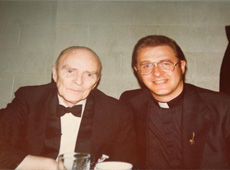Peace negotiator says Taoiseach right to voice frustration over Brexit
Posted By: August 02, 2017
DUP strangely silent over intervention
John Manley. Irish News. Belfast. Wednesday, August 2, 2017
One of the Irish government’s main peace process negotiators has said Leo Varadkar is “fully entitled” to voice his frustration over Britain’s failure so far to resolve the post-Brexit border question.
Martin Mansergh, the former Fianna Fáil minister and adviser to a number of taoisigh, was commenting on exchanges over recent days between the Fine Gael leader and various DUP representatives.
The cross-border controversy kicked-off on Friday after reports that the Dublin government advocated a ‘sea border’ around Ireland if the UK left the EU customs union.
The notion was dismissed by the British government and greeted with anger by unionists.
But a defiant Mr. Varadkar said Dublin was “not going to design a border for the Brexiteers.”
The Taoiseach’s remarks have been interpreted in some quarters as a hardening in Dublin’s approach, while DUP deputy leader Nigel Dodds claimed the Fine Gael leader was engaging in “pure politicking”.
In the latest salvo yesterday, Lagan Valley MP Sir Jeffrey Donaldson accused the Republic’s government of “megaphone diplomacy”.
But according to Mr. Mansergh, the Taoiseach’s forthright approach is justified, given the uncertainty arising from Brexit.
The former minister said the British had paid “little attention to the impact of Brexit on this side of the water” and had yet to table practical proposals about how the border will operate once the UK severs ties with Brussels.
“I think [Mr. Varadkar] is fully entitled to express some frustration, as there’s been this insinuation that it’s as much the Irish government’s responsibility to make it work as it is the British government’s – and that’s not the case,” he told The Irish News.
Mr. Mansergh said there was a history of robust exchanges between the British and Irish governments, and across the border.
“I used to work for Charlie Haughey and during the late 1980s he certainly expressed himself forcibly,” he said.
“Albert Reynolds could be robust too, though as the peace process got under way this was less the case,” he said
He said Mr. Varadkar’s style was different from his predecessor Enda Kenny.
“Varadkar’s style – for better or for worse – is a more forceful and there’s a difference in how he approaches things,” he said.
“I believe they [the Taoiseach and his predecessor] have been operating from the same hymn sheet so it’s more about a change in tone than a change in substance.”
Mr. Mansergh said the accusation of politicking was unfair.
“You can make the allegation of politicking at any time about any government but I don’t believe that’s what it’s about – Ireland’s interests need protected, especially when the other side appears distracted,” he said.
“A year from the vote and the British position is no clearer.”
One of the Irish government’s main peace process negotiators has said Leo Varadkar is “fully entitled” to voice his frustration over Britain’s failure so far to resolve the post-Brexit border question.
Martin Mansergh, the former Fianna Fáil minister and adviser to a number of taoisigh, was commenting on exchanges over recent days between the Fine Gael leader and various DUP representatives.
The cross-border controversy kicked-off on Friday after reports that the Dublin government advocated a “sea border” around Ireland if the UK left the EU customs union.
The notion was dismissed by the British government and greeted with anger by unionists.
But a defiant Mr. Varadkar said Dublin was “not going to design a border for the Brexiteers”.
The Taoiseach’s remarks have been interpreted in some quarters as a hardening in Dublin’s approach, while DUP deputy leader Nigel Dodds claimed the Fine Gael leader was engaging in “pure politicking”.
In the latest salvo yesterday, Lagan Valley MP Sir Jeffrey Donaldson accused the Republic’s government of “megaphone diplomacy”.
But according to Mr. Mansergh, the Taoiseach’s forthright approach is justified, given the uncertainty arising from Brexit.
The former minister said the British had paid “little attention to the impact of Brexit on this side of the water” and had yet to table practical proposals about how the border will operate once the UK severs ties with Brussels.
“I think [Mr. Varadkar] is fully entitled to express some frustration, as there’s been this insinuation that it’s as much the Irish government’s responsibility to make it work as it is the British government’s – and that’s not the case,” he told The Irish News.
Mr. Mansergh said there was a history of robust exchanges between the British and Irish governments, and across the border.
“I used to work for Charlie Haughey and during the late 1980s he certainly expressed himself forcibly,” he said.
“Albert Reynolds could be robust too, though as the peace process got under way this was less the case,” he said
He said Mr. Varadkar’s style was different from his predecessor Enda Kenny.
“Varadkar’s style – for better or for worse – is a more forceful and there’s a difference in how he approaches things,” he said.
“I believe they [the Taoiseach and his predecessor] have been operating from the same hymn sheet so it’s more about a change in tone than a change in substance.”
Mr. Mansergh said the accusation of politicking was unfair.
“You can make the allegation of politicking at any time about any government but I don’t believe that’s what it’s about – Ireland’s interests need protected, especially when the other side appears distracted,” he said.
“A year from the vote and the British position is no clearer.”










